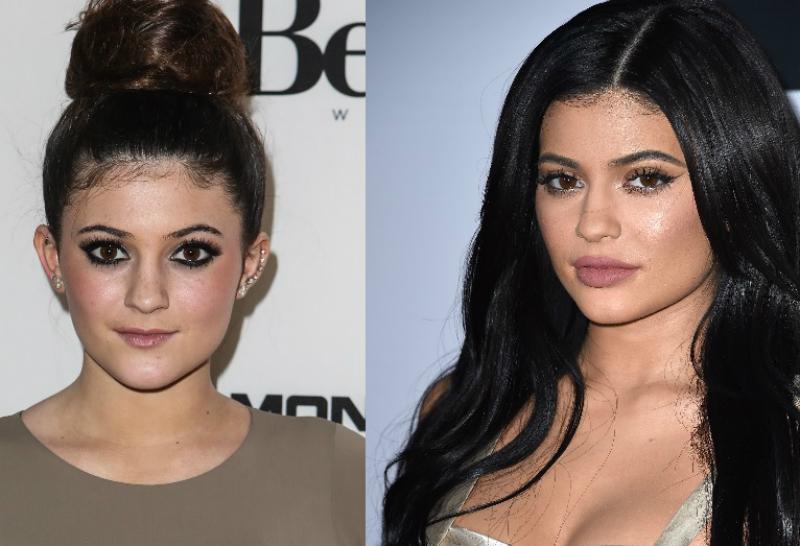Investigating the Mental and Social Factors That Drive People to Think About Cosmetic Surgical Procedure as a Means of Enhancement
The choice to seek cosmetic surgical treatment frequently expands past simple appearances, intertwining with emotional and social dynamics that warrant thorough examination. Variables such as self-confidence, prevalent social appeal requirements, and the prevalent influence of social media converge to form specific inspirations for medical enhancement.
The Function of Self-confidence
Self-confidence substantially affects an individual's decision to seek plastic surgery. People with low self-worth often perceive themselves in a negative light, leading to feelings of inadequacy regarding their physical look. This unfavorable self-perception can drive them to look for medical treatments as a method of boosting their self-image. The wish for renovation in one's appearance is frequently connected to a belief that such modifications will raise their overall self-respect and self-confidence.

Ultimately, the duty of self-confidence in the decision-making process regarding plastic surgery highlights the intricate interaction in between body picture, personal fulfillment, and psychological health and wellness. Comprehending this partnership is vital for health care professionals to make certain that individuals are making informed choices rooted in practical assumptions and emotional wellness.
Societal Charm Standards
Influenced by pervasive media representations and social stories, social charm criteria play an important role fit people' understandings of their very own bodies. These requirements are usually identified by an idealized kind of beauty that emphasizes traits such as proportion, slimness, and youthful vigor. As these suitables are perpetuated with various channels, including advertising and marketing, film, and television, people regularly internalize these messages, causing dissatisfaction with their natural look.
The ramifications of these societal standards extend past visual preferences; they can impact self-confidence, psychological health and wellness, and interpersonal partnerships. Individuals who regard themselves as disappointing these requirements might experience sensations of insufficiency, prompting a need for plastic surgery as a way of accomplishing societal approval. This search is often sustained by the idea that satisfying these ideals will certainly boost not only physical appearance yet additionally social standing and individual fulfillment.

Influence of Social Network
The effect of social appeal requirements is further magnified by the increase of social media platforms, where curated photos and idyllic depictions of elegance are ubiquitous. Individuals are frequently subjected to filtered and modified pictures, which often show unattainable physical characteristics. This exposure cultivates a culture of contrast, leading individuals to evaluate their own look against these usually impractical criteria.
Social network influencers click here now and celebrities regularly promote aesthetic procedures, stabilizing the idea that medical enhancements are a viable methods for attaining societal ideals (plastic surgery rancho cucamonga). The visibility of these enhancements can develop an assumption that going through cosmetic surgical treatment is a common method, thus affecting people to think about comparable interventions as a path to enhanced self-worth and social acceptance
Furthermore, the interactive nature of social networks permits immediate responses via sort and comments, better strengthening the wish to satisfy prominent elegance criteria. Such communications can intensify sensations of inadequacy and drive individuals towards you can look here plastic surgery as a method of getting validation. Ultimately, social media plays an essential role in forming perceptions of beauty, which considerably influences the decision-making processes bordering plastic surgery.
Social Viewpoints on Appearance
Throughout different cultures, assumptions of appearance are deeply rooted in historic, social, and financial contexts, forming people' sights on charm and value. In many societies, look acts as a considerable marker of identity, affecting social standing, specialist chances, and personal relationships. As an example, in some societies, light skin is usually related to riches and opportunity, while others may idealize darker complexion as signs of stamina and authenticity.
In addition, standard charm requirements are frequently perpetuated with cultural narratives, media depictions, and household affects, causing differing ideals throughout different areas (plastic surgery rancho cucamonga). In Western societies, the emphasis on young people and fitness usually drives people toward aesthetic enhancement, while in particular Eastern societies, even more subtle adjustments aligned with standard looks might be preferred
Globalization and the proliferation of electronic media have further complicated these characteristics, producing a hybridization of charm ideals that goes beyond geographical limits. As people significantly navigate these social stories, the pressure to comply with details look criteria can lead to the desire for cosmetic surgical treatment, mirroring an intricate interplay look at this now of personal desires and cultural worths. Recognizing these cultural perspectives is vital in dealing with the motivations behind cosmetic surgical procedure factors to consider.
Psychological Effects of Aesthetic Surgery
Many individuals seeking plastic surgery report experiencing profound mental impacts that can significantly modify their self-perception and psychological wellness - plastic surgery rancho cucamonga. The need for physical improvement typically originates from underlying problems such as reduced self-worth, body dysmorphic disorder, or societal stress regarding elegance standards. For some, the prompt post-operative phase can bring about a short-term increase in self-confidence and contentment with their look, cultivating a sense of empowerment
Nevertheless, these favorable feelings may not be sustaining. Research study indicates that while some individuals experience enhanced self-worth, others might face elevated anxiousness or depression if their expectations are not fulfilled. This inconsistency can arise from unrealistic ideals bolstered by media representation and social stories bordering elegance.
Furthermore, the mental implications of cosmetic surgery prolong beyond the individual. Relationships with friends and family might be strained as social characteristics change, resulting in feelings of seclusion or alienation. Eventually, the mental influences of cosmetic surgery are complex and complex, calling for mindful consideration by both prospective clients and healthcare service providers to guarantee enlightened decision-making and sensible assumptions.
Final Thought
Finally, the decision to pursue cosmetic surgery is considerably influenced by a mix of self-confidence problems, societal charm requirements, and social point of views on appearance. The prevalent reach of social media further exacerbates these stress, advertising unrealistic perfects that individuals often make every effort to attain. Recognizing these social and emotional aspects is important for addressing the motivations behind cosmetic surgical procedure, highlighting the demand for a more nuanced discussion surrounding elegance and self-acceptance in contemporary culture.
The choice to pursue cosmetic surgery usually expands beyond plain aesthetics, intertwining with social and emotional dynamics that merit thorough examination. Eventually, social media plays a critical duty in shaping assumptions of charm, which substantially affects the decision-making processes bordering cosmetic surgery.
As individuals progressively browse these social stories, the pressure to adhere to particular appearance standards can lead to the need for cosmetic surgery, reflecting a complicated interplay of cultural worths and individual desires.In final thought, the choice to pursue cosmetic surgery is substantially affected by a combination of self-esteem issues, social elegance requirements, and cultural perspectives on look. Comprehending these social and mental elements is vital for dealing with the inspirations behind cosmetic surgical treatment, highlighting the need for a more nuanced discussion surrounding elegance and self-acceptance in modern society.